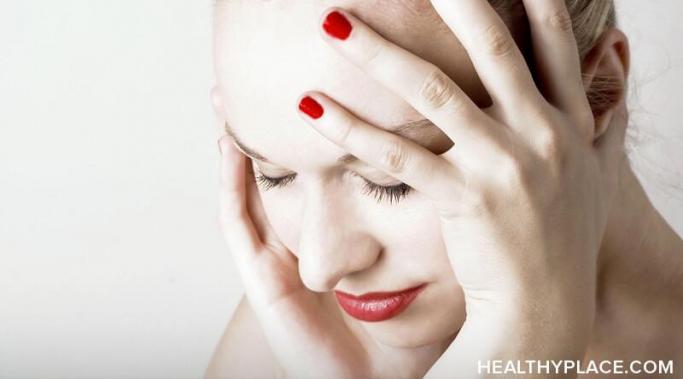Blogs
Feeling helpless helps my trauma recovery? Yes--you read the title correctly. The subject of this article is helplessness as a form of healing. If that sounds completely counterintuitive to you, you're not alone. I'm sure that if I had come across an article making this same claim in the past, I would have labeled it as completely ludicrous. But hear me out. If you totally disagree, you can write out your counter-argument in the comments.
There are many different types of alters in dissociative identity disorder (DID), including fictional introjects (Understanding Dissociative Identity Disorder Alters). Fictional introjects, also called fictives, are alters that are based off of fictional people or characters. While not as common as other types of alters, fictives are just as important. So how do these fictive alters in DID form, and what is their purpose?
Mood disorder symptoms and schizophrenia make up the two parts of schizoaffective disorder. The mood disorder can be bipolar disorder or depression. I write a lot about my psychotic symptoms on HealthyPlace, but today I want to discuss my mood disorder symptoms.
Is crying therapeutic for mental illness recovery? Crying can be used as an expressive mechanism to release inner turmoil. It can also be a sign of trauma and holding on to negative emotions. There are a variety of feelings and experiences associated with mental illness, and crying can be therapeutic. But, just like with anything, balance and awareness are two essential features that can help you decide how much crying is therapeutic for you.
People who struggle with mental illness, especially borderline, can have a hard time keeping their own sense of self within a relationship, making heartbreak that much more painful. I know I am definitely guilty of this. How do I not feel lost when I lost such a big part of my life? As I'm still trying to process losing my relationship, I'm being forced to find a new sense of self that allows me to feel safe alone.
The stress of change can be difficult for any child, but for children with emotional and behavioral disorders, the stress of change hits harder. They often can't predict their own behaviors, thoughts, or feelings, so it makes things worse when they can't predict their environment either. Life isn't very predictable, though, so how do we help our children with mental illnesses better manage the stress of change?
Is it possible to destigmatize mental illness by refusing to use the word "stigma?" If you’re having a discussion about mental illness, it’s almost inevitable someone will mention stigma. When talking mental health, stigma refers to the misinformed perceptions and ideas about mental illness and those with it. It’s a big component in why people feel ashamed to have a mental illness and suffer in silence instead of seeking mental health treatment and understanding that mental illness is just an illness. Since there is still widespread misinformation, it’s not surprising the word "stigma" comes up often. What is surprising, however, is that there are those who say stigma does not exist, we should stop using the word "stigma," and I’ve even seen the claim that it’s offensive. Can we destigmatize mental illness by not using the word "stigma?"
Does social media cause anxiety or not? Though social media is often seen as something that provokes anxiety, I find that social media platforms can be useful in alleviating my anxiety symptoms. I am anxious when I see disturbing news or opposing political views on my social media. But having an online support group for my anxiety disorders and my life, post-divorce, has been invaluable to me. For this and many other reasons, I find my social media to be a bit of a double-edged sword regarding anxiety management and knowing whether social media is causing anxiety.
Self-care is important, but when life gets chaotic, self-care is the first thing to go out the window. What should be a priority becomes more like a reward I have to earn. I start telling myself that once I get through my overwhelming to-do list, then I am allowed to relax. This makes me more anxious, which actually makes it even harder to make self-care important.









